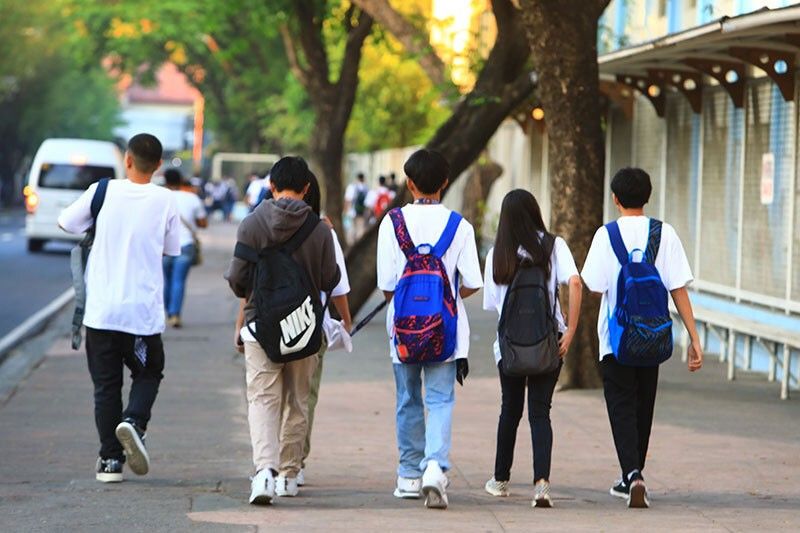More students applying in SUCs

MANILA, Philippines — Following the implementation of the free higher education policy, more students are now applying in state universities and colleges (SUCs), according to Commission on Higher Education (CHED) chairman J. Prospero de Vera III.
“Because of the free higher education, the number of students applying for admission – especially in public universities – has exponentially increased,” De Vera said on Tuesday.
“Before the free higher ed, the distribution of enrollment was about 55 percent in private schools and 45 percent in public universities. Now, it’s more than 50 percent in public universities. A majority of students now are enrolled in public universities, especially during COVID because the economy was down,” he added.
De Vera said the percentage of university-age Filipinos enrolled in colleges increased to 41 percent from just 30 percent before free higher education was implemented and the pandemic.
And while this can be a good indicator in terms of Filipinos’ interest to pursue higher education, De Vera said most public higher education institutions (HEIs) could no longer stretch their capacity to accept more students.
He noted the low acceptance rate of institutions like the University of the Philippines, which can only accept around 14,000 students per year out of more than 100,000 applicants.
In a statement issued on Monday, the Polytechnic University of the Philippines said it admitted only 20,000 of the 172,608 applications it received across its various branches and satellite campuses.
De Vera said the high number of applicants could affect the equity mandate of public HEIs, noting the possibility that more students coming from affluent families pass the entrance tests.
“If you don’t do anything, those who will pass the admission test tend to (come from) the relatively richer families, those who can afford a review class,” he said. “And we want equity. It should be access and equity to quality education.”
De Vera said public universities should adopt affirmative action programs that will allow more students coming from disadvantaged sectors to be admitted.
“They can tweak the admission process so the relative weights they put in certain parts of the exam can slowly increase the percentage of students who come from disadvantaged groups,” he said.
“We must consciously try that the less fortunate who want to get educated are brought in. Because once they enter a public university, their tuition and miscellaneous fees are already free. We can support them,” he added.
Asked about the possibility of expanding existing or establishing new state colleges and universities, De Vera cited budget requirements for new facilities and faculty items.
But he said some have found ways to maximize existing facilities, to accommodate more students without compromising the quality of education.
“Many SUCs already increased the enrollment. Their carrying capacity cannot be stretched further,” De Vera said.
Mass promotion hit
The Alliance of Concerned Teachers (ACT) yesterday described the supposed “unofficial policy of mass promotion” of students as a result of the worsening education crisis in the country.
Reacting to a study conducted by the Philippine Business for Education (PBEd), the ACT said teachers are burdened with having underperforming learners, which is due to the worsening learning conditions in the country.
“Despite all their efforts at intervention, teachers are grilled when they give failing grades. Did the teacher take extra time to teach underperforming learners? Have they talked to the parents? Have they done home visitation? Still, teachers are the ones to take on the responsibility of giving remedial classes during school break, without extra pay but mere service credits,” ACT chairman Vladimer Quetua said.
“School heads and education officials openly encourage mass promotion as failing marks do not do good to the image of the school, affect the education agency’s ranking in the grant of performance-based bonus and hurt the Philippines’ performance in its commitment to the United Nation’s Sustainable Development Goals,” Quetua said.
He said school heads are worried that having repeaters would only worsen the problem of big class size.
The PBEd on Monday released its state of education report, which highlighted the impact of the supposed unofficial policy on mass promotion.
“Our learners are not truly learning, but merely progressing through the school system. Without a strong foundation in education, our workforce becomes less competitive on the global stage. It hinders innovation, productivity and economic growth, limiting our potential for progress and prosperity,” PBEd executive director Justine Raagas said.
Raagas said participants across all education sectors agree that one of the underlying causes of poor student learning outcomes was the unspoken but common practice of automatic or mass promotion.
The PBEd cited what it described as a “flawed connection” between student outcomes and performance-based bonus awarded to teachers as well as the school’s ranking in the region.
It said this led to the perception that teachers have no alternative but to ensure the promotion of all their students.
According to ACT, learning conditions lead to more and more students who are unable to satisfactorily master the set competencies in various grade levels.
“It is simply impossible to ensure that all students learn in oversized classes, studying in cramped and dilapidated classrooms and without sufficient learning materials,” Quetua said.
“How can teachers monitor the progress of each and every student in large classes, when they are also swamped with non-teaching duties and have to look for additional sources of income to augment their meager salaries?”
Beyond the issue of giving passing or failing marks, Quetua said it is important to address problems that result in poor quality of education.
The government has to step up efforts in addressing education shortages and improving conditions of teachers to provide students with a more favorable learning environment.
- Latest
- Trending






























